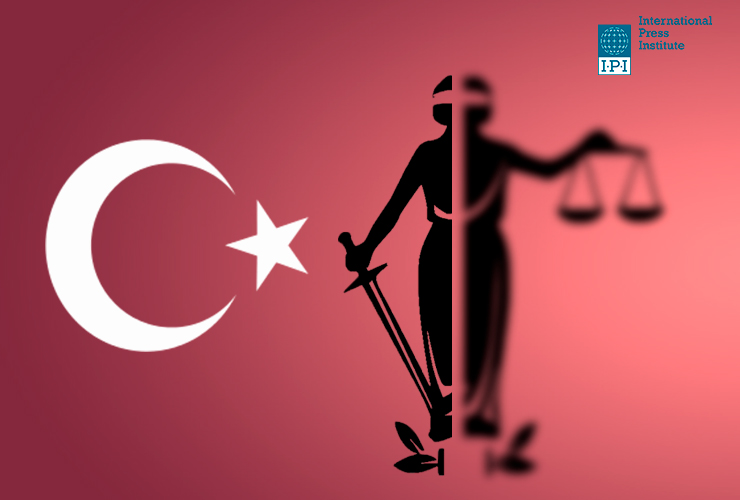Yesterday, IPI quoted the academic and journalist Mehmet Altan from his defence statement given on Tuesday when he said, “If the rule of law were upheld, I would not have gone through any of what I am going through. I am here because the rule of law has been destroyed.”
Today, with six aggravated life sentences handed out to him and his co-defendants, comes proof of the total disregard for the rule of law in Turkey.
The Turkish courts repeatedly failed to uphold due process throughout this and other trials in which Mehmet Altan and his brother, author Mehmet Altan, are defendants. This disregard for legal procedure is evident on many levels, such as lengthy pre-trial detentions, a lack of evidence and the late production of indictments. Added to this now is a sentence that far outweighs the alleged crimes.
Aggravated life sentences for sending ‘subliminal messages’
It seems heavy handed enough that Turkish courts sentence journalists and civilians for re-tweets and social media shares, but we now appear to have moved into a yet more surreal phase in which journalists can be subjected to aggravated life sentences for such spurious allegations as sending subliminal messages to the public during television interviews to trigger the attempted coup.
This is not merely censorship at its height, nor only the impeding of freedom of expression: This is the clearest possible demonstration of the blatant disregard for the values of justice and of freedom of speech both at home and in the wider world.
The decision in the Altan brothers’ case comes just hours after the Istanbul’s 32nd High Criminal Court released German newspaper Die Welt’s Turkish correspondent Deniz Yücel on bail.
Like the Altans, Yücel was held for just over a year in solitary confinement with no indictment and with “evidence” consisting only of journalistic articles. And yet today Yücel was released on bail with the freedom to travel abroad whereas the Altans were sentenced to spend the rest of their lives in prison.
The difference between Yücel and the Altans is that one has been used as a political pawn and the others have been punished for their outspoken expression.
Or as the chair of IPI’s Turkey National Committee, Kadri Gürsel, put it:
Deniz Yücel’in serbest bırakılması güzel bir haber ama bu onun siyasi bir pazarlık unsuru olarak iddianamesiz, delilsiz bir yıl hapiste tutulduğu gerçeğini unutturmuyor. Bırakılacağını Başbakan’dan öğrenmek de rehine durumunun zımni itirafı oldu
— Kadri Gürsel (@KadriGursel) February 16, 2018
“The release of Deniz Yücel is good news. However, it must not be forgotten that he was held as a bargaining chip in prison for one year with no indictment. The fact that we learn of his release from the prime minister himself is an unspoken confession of his status as a hostage.”
The rule of law has been shattered today in Turkey and it is clearer than ever that the government’s influence over the judiciary is allowing it to ensure that journalists and authors who criticize President Recep Tayyip Erdogan and the Turkish government are punished.
It is now time for the European Court of Human Rights to act swiftly on the cases before it of Turkish journalists. The court should not heed objections from those governments in Europe who have trade with Turkey as a higher priority than human rights, justice and a free media.
Journalism is not a crime. Journalists must not be used as political hostages and they certainly should not face life in prison for exercising their right to freedom of expression. IPI will continue to monitor the trials of journalists in Turkey and will report on all failures to uphold the rule of law. We will stand by our members, colleagues and our National Committee in Turkey and will advocate in Europe and Turkey even more strongly for the return of freedom of the press to Turkey and the release of all journalists imprisoned for fulfilling the public’s right to receive balanced and critical reporting.
